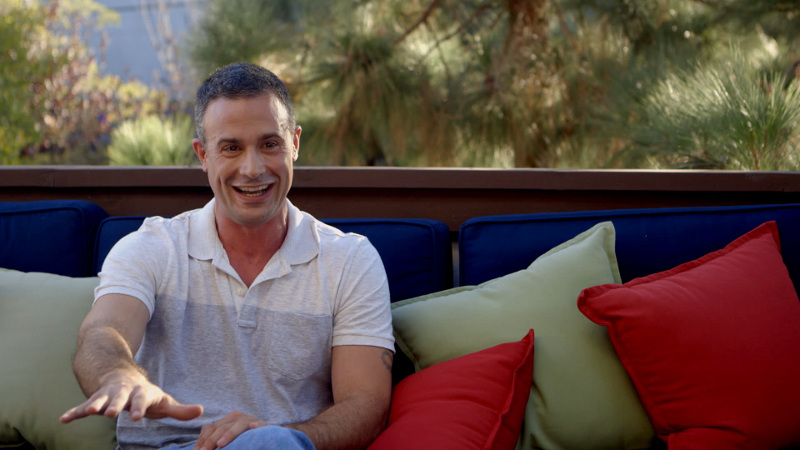It’s a strong word, misery. It makes you think of unremitting sorrow, a darkness it’s difficult to see a way out of, unforgiving conditions that make life well-nigh unbearable. A fertile backdrop for a career in stand-up comedy, you might assume. But despite the promise of his film’s title, it’s a subject that veteran US actor and comedian Kevin Pollak hardly dares to touch in his bright, breezy but frustratingly lightweight debut feature.
Instead, he goes for quantity over quality, and assembles interviews with what’s admittedly an astonishing roll-call of more than 50 comedians and comedy actors – predominantly from the US and Canada, with a couple of Brits and Aussies thrown in for good measure. Watch out for the captioning, though – some are name-checked, but many are not, so you’d better be up on your Stateside stand-ups if you hope to identify who’s speaking.
It’s not helped by Pollak’s reluctance to get involved, to probe more deeply or pose challenging questionsAnd you can only wonder at how many hundreds of hours of footage Pollak’s endless interviews generated – and whether a lot of good material ended up on the cutting-room floor. Because the subjects that his relentless succession of talking heads expound on – early family life; the need for acceptance at school; learning the trade; the horrors of dying on stage; camaraderie and jealousy within the comedy world – are all interesting enough, but few of them reveal anything that’s particularly compelling. It’s not helped by Pollak’s reluctance to get involved, to probe more deeply or pose challenging questions.
There are notable exceptions. Christopher Guest relates a laconic anecdote about Spinal Tap being unrecognised in French-speaking Canada, and Larry David is just as needy and awkward as he is when performing. But it still feels like they’re too savvy to properly open up, and that Pollak is too polite to challenge or scrutinise. Even what should be the film’s most powerful passage – Freddie Prinze Jr (pictured below) discussing the suicide of his father Freddie Prinze (quite an achievement from Pollak) – falls pretty flat when there isn’t that much of consequence to say.
 Pollak’s calmer, quieter moments are his most perceptive. Steve Coogan comes across as a thoughtful, astute presence, explaining the difference between a laugh of the intellect and a belly laugh of recognition at the human condition, and Sam Rockwell is almost embarrassed to be describing acting and performing as a spiritual experience. Jim Jefferies offers plenty to chew on, too – not least his realisation that he’s giving his own son precisely the kind of privileged, middle-class upbringing that he despises in others.
Pollak’s calmer, quieter moments are his most perceptive. Steve Coogan comes across as a thoughtful, astute presence, explaining the difference between a laugh of the intellect and a belly laugh of recognition at the human condition, and Sam Rockwell is almost embarrassed to be describing acting and performing as a spiritual experience. Jim Jefferies offers plenty to chew on, too – not least his realisation that he’s giving his own son precisely the kind of privileged, middle-class upbringing that he despises in others.
But for the most part, rather than appearing – as we might expect – as tortured artists struggling against depression and the expectations of family, friends and audiences, Pollak’s starry assembly comes across as a self-obsessed, often quite tedious lot, so bound up in the comedy world that they’re unaware of much beyond it. Which in some cases probably confirms what we’d long suspected, and in others does them a huge disservice.
Pollak only gets round to misery right at the end, in a quick-fire sequence of comedians either agreeing or disagreeing that you have to be miserable to be funny. By then, though, you’ll probably have stopped caring – or forgotten what the film was meant to be about. Misery Loves Comedy is clearly a labour of love for Pollak, and the time and care with which he’s stitched it all together are achingly evident, but it’s also bafflingly slight.















Add comment